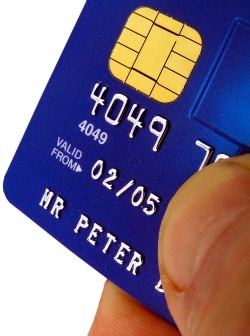The Unintended Consequences of Credit Union Regulation
 You might know Square, for that little white cube merchants use to swipe your credit card. Jack Dorsey the founder of Square (also the founder and newly minted CEO of Twitter) just planned an IPO for his credit card company. To date in 2015, Square has lost $77 million and there is not a clear path to profitability for the company. Add to this the fact that Square recently lost the deal they had with Starbucks and its future appears to be tenuous to say the least.
You might know Square, for that little white cube merchants use to swipe your credit card. Jack Dorsey the founder of Square (also the founder and newly minted CEO of Twitter) just planned an IPO for his credit card company. To date in 2015, Square has lost $77 million and there is not a clear path to profitability for the company. Add to this the fact that Square recently lost the deal they had with Starbucks and its future appears to be tenuous to say the least.
However, among all the media reports about Square and its future, one fact has gone under reported, if reported at all. Credit unions by now are all too familiar with this fact - the EMV chargeback liability shift to merchants that do not support EMV chip cards, effective this month. This means that Square merchants become liable for fraud if they are not using readers that accept chip cards. And while Square does have readers that accept chip cards, they are charging money for them while their previous readers were free. The concerns for a company like Square become obvious: If their customers do not purchase chip readers, they will be dealing with potential liability costs and fraud within their service generally.
When MasterCard and Visa set their October 1, 2015 deadline for US financial card issuers (credit unions and banks) to replace magnetic stripe cards with EMV cards, I'm certain the last thing on their mind was creating havoc for business start-ups like Square. Credit mandates and regulation generally speaking are put in place to solve problems, in this case to reduce fraud, but little thought goes into the far reaching impact of the unintended consequences that result. Credit unions have felt these effects as the CFPB has enacted the TILA-RESPA Integrated Disclosure Rule... The fallout? Many credit union core processing systems have dropped loan desk support for mortgage servicing and mortgage origination, leaving CU's to manage this on their own or incur direct costs by looking for new third-party providers. Credit unions in many cases can protect themselves from these impacts by choosing providers that guarantee regulatory compliance, such as FLEX.
The final chapter has not been written for Square, and they may yet survive and prove to be worth their valuation. A strong message however lives within this story: Firms who look for economic opportunities of creative destruction (in this case changing the payments system) should also be wary of unintended consequences. Credit unions should take note too.



